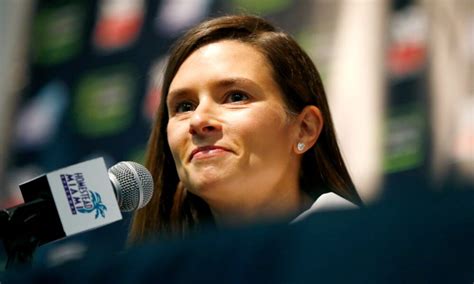
After five seasons, NBC has canceled the popular medical drama “New Amsterdam,” sparking disappointment among its devoted fanbase who took to social media to express their dismay. The show, known for its optimistic and compassionate portrayal of healthcare within a public hospital, will conclude with its upcoming thirteenth episode of the final season, leaving many viewers feeling that the network has prematurely ended a series with significant emotional resonance.
“New Amsterdam,” which premiered in September 2018, quickly garnered a loyal following due to its unique approach to medical storytelling, emphasizing the human connections between doctors, patients, and staff at the fictional New Amsterdam Hospital, inspired by Bellevue Hospital, one of the oldest public hospitals in the United States. The series stars Ryan Eggold as Dr. Max Goodwin, a charismatic and idealistic medical director who strives to reform the hospital’s bureaucracy and provide exceptional care to all patients, regardless of their socioeconomic status.
The cancellation announcement has triggered a wave of reactions on platforms like Twitter, with fans using hashtags such as #SaveNewAmsterdam and #RenewNewAmsterdam to voice their opposition to the decision. Many expressed their belief that the show still had compelling storylines to explore, while others criticized NBC for cutting short a program that offered a positive and hopeful perspective on the healthcare system, a perspective often overshadowed by more cynical or sensationalized portrayals in other medical dramas.
The series also stars Freema Agyeman as Dr. Helen Sharpe, Janet Montgomery as Dr. Lauren Bloom, Jocko Sims as Dr. Floyd Reynolds, and Tyler Labine as Dr. Iggy Frome. These actors, along with Eggold, have been integral to the show’s success, each bringing depth and complexity to their respective roles. The ensemble cast’s chemistry and commitment to their characters have been widely praised by critics and viewers alike.
NBC’s decision to cancel “New Amsterdam” comes despite the show’s consistent viewership and positive critical reception. While the network has not explicitly stated the reasons behind the cancellation, industry analysts speculate that factors such as declining ratings in recent seasons, rising production costs, and the network’s strategic shift towards developing new programming may have contributed to the decision. The final season has also seen a significant change in its story arcs and character dynamics which may have influenced viewership.
Fans are not only lamenting the loss of their favorite show but also expressing concerns about the unresolved storylines and character arcs that may not receive proper closure. The cancellation announcement has led to speculation about the possibility of a spin-off series or a revival in the future, although no concrete plans have been announced by NBC or the show’s producers.
The cancellation serves as a reminder of the unpredictable nature of television programming and the challenges that networks face in balancing creative aspirations with financial realities. While “New Amsterdam” may be ending its run on NBC, its impact on the medical drama genre and its lasting legacy among its devoted fans are undeniable.
In-Depth Analysis and Context
“New Amsterdam” distinguished itself from other medical dramas through its optimistic and empathetic approach to healthcare. Unlike shows that often focus on the high-stakes drama of the emergency room or the cutthroat competition among surgeons, “New Amsterdam” emphasized the importance of human connection, compassion, and social justice within the healthcare system.
Dr. Max Goodwin’s character, inspired by the real-life Dr. Eric Manheimer, former medical director at Bellevue Hospital, embodied this ethos. Goodwin’s relentless dedication to reforming the hospital’s bureaucracy, advocating for patients’ rights, and addressing systemic inequalities resonated with viewers who were seeking a more hopeful and humanistic portrayal of healthcare.
The show’s storylines often tackled complex social issues such as healthcare access for undocumented immigrants, the opioid crisis, mental health stigma, and racial disparities in healthcare outcomes. By addressing these issues head-on, “New Amsterdam” sparked important conversations and raised awareness about the challenges facing the healthcare system.
The series also explored the personal lives and struggles of its main characters, providing viewers with a deeper understanding of their motivations and vulnerabilities. Dr. Helen Sharpe’s ambition and her complicated relationship with Dr. Goodwin, Dr. Lauren Bloom’s battle with addiction, Dr. Floyd Reynolds’ experiences as a Black surgeon navigating a predominantly white medical establishment, and Dr. Iggy Frome’s struggles with mental health and body image all contributed to the show’s rich and nuanced character development.
The ensemble cast’s chemistry and their commitment to portraying authentic and relatable characters were crucial to the show’s success. Ryan Eggold’s portrayal of Dr. Goodwin was particularly praised for his charisma, idealism, and unwavering dedication to his patients. Freema Agyeman’s performance as Dr. Sharpe, a brilliant oncologist with a complex personal life, also garnered critical acclaim.
Despite its positive critical reception and loyal fanbase, “New Amsterdam” faced challenges in maintaining its viewership numbers in recent seasons. The show’s ratings declined gradually, particularly among younger demographics, which are highly valued by advertisers.
Several factors may have contributed to the ratings decline. The show’s storylines, while often compelling, could sometimes be emotionally draining for viewers, particularly during the COVID-19 pandemic when real-life healthcare workers were facing unprecedented challenges. The shift in viewing habits, with more people consuming content through streaming services rather than traditional television, may have also played a role.
NBC’s strategic shift towards developing new programming and focusing on more commercially viable genres may have also influenced the decision to cancel “New Amsterdam.” The network has been investing heavily in reality television, competition shows, and comedy series, which tend to attract larger audiences and generate more revenue.
The cancellation of “New Amsterdam” highlights the challenges that networks face in balancing creative aspirations with financial realities. While the show may have been critically acclaimed and beloved by its fans, it ultimately failed to meet the network’s financial expectations.
Fan Reactions and Social Media Response
The cancellation announcement has been met with widespread disappointment and anger from “New Amsterdam” fans. Social media platforms like Twitter have been flooded with messages expressing sadness, frustration, and disbelief.
Many fans have expressed their belief that the show still had compelling storylines to explore and that the cancellation was premature. They argue that the show’s unique approach to medical storytelling, its emphasis on human connection, and its willingness to tackle important social issues made it a valuable and important contribution to the television landscape.
Some fans have launched online petitions and social media campaigns in an effort to persuade NBC to reverse its decision. They are using hashtags such as #SaveNewAmsterdam and #RenewNewAmsterdam to raise awareness and mobilize support.
Other fans have expressed concerns about the unresolved storylines and character arcs that may not receive proper closure. They are worried that the final season will end on a cliffhanger or that their favorite characters will not get the endings they deserve.
The cancellation announcement has also sparked speculation about the possibility of a spin-off series or a revival in the future. Some fans have suggested that the show could be revived on a streaming platform or that a spin-off series could focus on a particular character or storyline.
However, NBC has not announced any concrete plans for a spin-off or revival, and it remains unclear whether such a project would be feasible.
The fan response to the cancellation of “New Amsterdam” underscores the emotional connection that viewers can form with their favorite television shows. The show’s characters, storylines, and themes resonated deeply with many viewers, who saw it as a source of inspiration, hope, and comfort.
The cancellation serves as a reminder of the power of television to connect people, spark conversations, and make a difference in the world. While “New Amsterdam” may be ending its run on NBC, its impact on the medical drama genre and its lasting legacy among its devoted fans are undeniable.
The Show’s Legacy and Impact
“New Amsterdam” leaves behind a significant legacy in the landscape of medical dramas. Its optimistic and compassionate approach to healthcare distinguished it from other shows in the genre, which often focus on the high-stakes drama of the emergency room or the cutthroat competition among surgeons.
The show’s emphasis on human connection, empathy, and social justice resonated with viewers who were seeking a more hopeful and humanistic portrayal of healthcare. Dr. Max Goodwin’s character, inspired by the real-life Dr. Eric Manheimer, embodied this ethos, advocating for patients’ rights and addressing systemic inequalities.
“New Amsterdam” also tackled complex social issues head-on, such as healthcare access for undocumented immigrants, the opioid crisis, mental health stigma, and racial disparities in healthcare outcomes. By addressing these issues, the show sparked important conversations and raised awareness about the challenges facing the healthcare system.
The series also provided a platform for underrepresented voices in the medical profession. Dr. Floyd Reynolds’ experiences as a Black surgeon navigating a predominantly white medical establishment and Dr. Iggy Frome’s struggles with mental health and body image offered valuable insights into the challenges faced by marginalized communities.
“New Amsterdam” also had a positive impact on the real-world healthcare system. The show partnered with several organizations to raise awareness about important health issues and to support healthcare workers.
The show’s creators and cast members have also spoken out in support of various healthcare initiatives, advocating for policies that would improve access to care and reduce healthcare disparities.
“New Amsterdam” may be ending its run on NBC, but its impact on the medical drama genre and its lasting legacy among its devoted fans are undeniable. The show’s optimistic message, its commitment to social justice, and its authentic portrayal of the human experience will continue to inspire and resonate with viewers for years to come.
Potential Reasons for Cancellation
While NBC has not provided a specific reason for canceling “New Amsterdam,” several factors likely contributed to the decision:
- Declining Ratings: Although “New Amsterdam” maintained a loyal fanbase, its viewership numbers gradually declined over the past few seasons. This is a common trend for many network television shows as viewers increasingly turn to streaming services for their entertainment.
- High Production Costs: Medical dramas are generally expensive to produce due to the need for specialized sets, equipment, and medical consultants. As ratings decline, the cost-benefit ratio becomes less favorable for the network.
- Strategic Shift: NBCUniversal has been undergoing a strategic shift towards prioritizing streaming content and developing new programming for its Peacock streaming service. Canceling a long-running series like “New Amsterdam” frees up resources for these new initiatives.
- Creative Fatigue: After five seasons, it’s possible that the show’s writers and producers were running out of fresh storylines and ideas. Maintaining the quality and originality of a medical drama over an extended period can be challenging.
- Contract Negotiations: Renewing contracts for the show’s cast and crew can be a significant expense. If negotiations stalled or became too costly, it may have influenced the decision to cancel the series.
The Future of Medical Dramas
The cancellation of “New Amsterdam” raises questions about the future of medical dramas on network television. While the genre has a long and successful history, it faces increasing competition from streaming services that offer a wider variety of content and more flexible viewing options.
To survive and thrive in the streaming era, medical dramas may need to adapt to changing viewer preferences. This could involve:
- Shorter Seasons: Shorter seasons with tighter storylines can help maintain viewer engagement and prevent creative fatigue.
- More Diverse Storylines: Exploring a wider range of medical issues and representing diverse perspectives can attract a broader audience.
- Hybrid Models: Combining traditional broadcast with streaming options can provide viewers with more flexibility and convenience.
- Focus on Character Development: Deep, complex character development is crucial for drawing viewers in and investing them in the show’s outcomes.
FAQ Section
Q1: Why was “New Amsterdam” canceled?
A: NBC has not provided a specific reason for the cancellation. However, potential factors include declining ratings, high production costs, a strategic shift towards streaming content, creative fatigue, and potentially challenging contract negotiations.
Q2: Will there be a “New Amsterdam” spin-off or revival?
A: As of now, NBC has not announced any plans for a “New Amsterdam” spin-off or revival. While fans have expressed interest in seeing more of the show, there are no confirmed projects in development. Any future continuation would depend on various factors, including the availability of the cast and the willingness of NBC or another network/streaming service to invest in the project.
Q3: How have fans reacted to the cancellation?
A: Fans have expressed widespread disappointment and anger on social media platforms like Twitter. They have launched online petitions and social media campaigns, using hashtags such as #SaveNewAmsterdam and #RenewNewAmsterdam, in an effort to persuade NBC to reverse its decision. Many fans believe that the show still had compelling storylines to explore and that the cancellation was premature.
Q4: What made “New Amsterdam” different from other medical dramas?
A: “New Amsterdam” distinguished itself through its optimistic and empathetic approach to healthcare, emphasizing human connection, compassion, and social justice. Unlike shows that often focus on the high-stakes drama of the emergency room or the cutthroat competition among surgeons, “New Amsterdam” highlighted the importance of patient care and addressing systemic inequalities within the healthcare system. The character of Dr. Max Goodwin, inspired by the real-life Dr. Eric Manheimer, embodied this ethos.
Q5: What is the legacy of “New Amsterdam?”
A: “New Amsterdam” leaves behind a legacy of positive and compassionate storytelling within the medical drama genre. It tackled complex social issues, such as healthcare access for undocumented immigrants, the opioid crisis, mental health stigma, and racial disparities in healthcare outcomes, sparking important conversations and raising awareness. The show’s emphasis on human connection and its uplifting message resonated with viewers, and it will be remembered for its unique approach to depicting the challenges and triumphs of the healthcare system.









